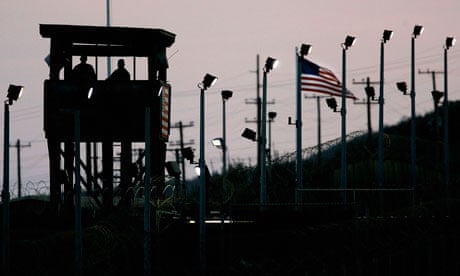The Ministry of Defence has been ordered to disclose its involvement in the US-led rendering of terror suspects seized in Iraq and Afghanistan to prisons where they were likely to be abused or tortured.
In a move that should break official secrecy surrounding the practice, the Information Rights Tribunal has rejected MoD claims that providing the data would be too costly and damage Britain's international relations.
The tribunal, which hears disputes arising from Freedom of Information Act disclosure requests, says it was "difficult to see how any responsible government … with whom we have friendly relations could take offence at open disclosure" of the terms of agreement or arrangements over the practice "to ensure that the law is upheld".
It adds: "Unless cogent evidence is adduced to show why a particular government would have strong concerns about disclosure of such information as we are here considering, we would be minded to conclude that no case of prejudice to international relations would be made out. If, on the other hand, there was such a case, then the public interest in disclosing the terms of those arrangements becomes that much more pressing and weighty."
The tribunal's ruling came in response to a request, made three years ago by the all-party parliamentary group on extraordinary rendition, chaired by the senior Conservative backbencher, Andrew Tyrie. It follows allegations by Ben Griffin, a former member of the SAS, that detainees captured by British special forces had been transferred to US forces under whose authority they had been tortured or unlawfully removed from Iraq.
An internal MoD review concluded in 2008 that there was no evidence of unlawful rendition. A year later, it admitted that two detainees captured by British forces in Iraq had been rendered to a notorious jail in Bagram in Afghanistan.
"For closure on rendition we need disclosure. One way or another, the truth will eventually come out," Tyrie said. " Unless the MoD decides to appeal, this judgment will add to the drip-drip of information on rendition in recent years. Far better for us to get to the bottom of this quickly, to learn the lessons and to move on."
David Cameron last year asked Sir Peter Gibson, a former appeal court judge and intelligence services commissioner, to investigate whether Britain was involved in the improper treatment of detainees held by other countries.
However, he also said "military detention operations" in Iraq and Afghanistan after 2003 would be investigated separately by the MoD. The parliamentary extraordinary rendition group objects to what it calls an arbitrary cut-off date.
Tyrie has written to Sir Malcolm Rifkind, chairman of the Intelligence and Security Committee, saying that earlier guidance to intelligence officers involved in interrogating detainees abroad, and the committee's view of it, have not been published. That did not inspire public confidence in ISC investigations, Tyrie says.
